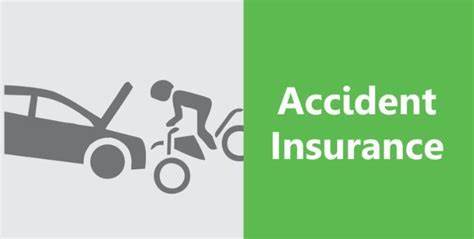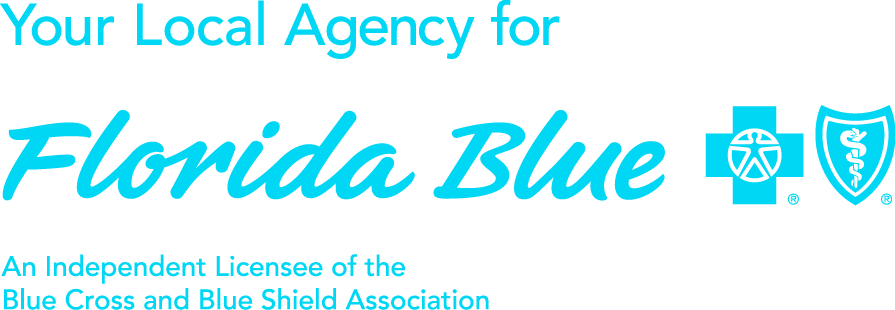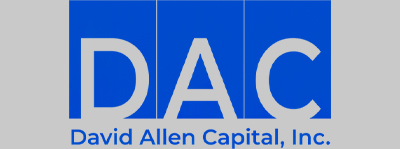What is Accident Insurance and How Does it Work?

Accident insurance helps you pay for medical and other out-of-pocket costs that you may incur after an accidental injury. This includes emergency treatment, hospital stays, medical exams, as well as other expenses you may face such as transportation and lodging needs. Accident insurance can provide protection that fills the gap in coverage between medical insurance and other policies, such as workplace or vehicle insurance.
Here is a closer look at what personal accident insurance is, what it does and does not cover, and why it is useful.
What is accident insurance?
Personal accident insurance, also known as fixed indemnity insurance, provides protection for the policyholder if they get in an accident. In most cases, an accident is an unintended event that leads to injury. In some cases, someone could be partially or fully liable for causing the accident.
These policies can cover both minor damage and major disabling events. Accident insurance is different from auto, medical, or employment insurance. However, having this other coverage is necessary as well because accident insurance is not a comprehensive policy. For example, it will not cover vehicle damage or liability if you are responsible for an auto accident.
How does accident insurance work?
First, you must understand the difference between accident insurance and health insurance. Health insurance covers you for the immediate treatment that you receive after an accident, while accident insurance covers any financial burden that you incur due to the accident. This can include copayments in hospitals, physiotherapy, other services not covered by your health insurance, and any out-of-pocket expense from the accident.
One of the biggest advantages of accident insurance is that payouts come in cash, which can relieve the financial burden you experience after an accident. Furthermore, there isn’t a waiting period, so you get the money immediately.
Accident insurance premiums vary depending on coverage. It is essential to understand what the policy includes and also the types of accidents covered.
What does accident insurance cover?
Accident insurance covers qualifying injuries, which might include a broken limb, loss of a limb, burns, lacerations, or paralysis. In the event of your accidental death, accident insurance pays out money to your designated beneficiary. While health insurance companies pay your provider or facility, accident insurance pays you directly.
Accident insurance is considered supplemental insurance and is most helpful when it is used in combination with a major medical plan. Your accident coverage will take care of expenses not covered by your medical plan, such as copayments and your deductible. It will also cover non-medical costs like mortgage or rent, utility bills, and other daily expenses.
What does personal accident insurance not cover?
Accident insurance covers the policyholder and focuses on the gaps that major medical insurance or critical illness insurance is not able to cover. It is also essential to know the limits of accident policies. Here are some things that are not covered.
- If you get into an accident because of a disease or illness, such as something that causes heart failure or seizures, you are likely not covered.
- The policy typically excluded injuries due to extreme sports like bungee jumping or scuba diving.
- You will not be covered if the injury occurs while doing illegal or criminal activities.
- If the incident occurred while you were under the influence of alcohol or drugs, you will not get a cash payout.
- Policies only cover you after becoming active. Therefore, they do not pay for injuries sustained before you activated the policy and paid your first premium.
- Self-inflicted injuries are never covered by the policies.
Why is personal accident insurance important?
It is crucial to have a backup plan if you cannot work due to an accident and if you are confronted with costs not covered by other insurance plans.
Here are five reasons why an accident insurance policy is important.
- It covers things not included in your regular or short-term plans for medical insurance. For example, if you need rehabilitation or equipment like a wheelchair or crutches, you may get medical care.
- Medical insurance underwriting can be discriminative because it sometimes refuses to cover injuries due to pre-existing conditions. However, accident insurance coverage does not involve underwriting, so there are no such limitations.
- If you are self-employed and don’t have sick days or workers’ compensation, a fixed indemnity policy can cover you for the days you are not able to work.
- With the right coverage, you will not have to worry about injuries keeping you from working. You can live your life as normal knowing you have additional coverage.
- Unlike medical insurance, accident insurance can be inexpensive depending on the state and the coverage you need.
Who should get accident insurance?
Paying for anything out of pocket puts a strain on your finances, especially if the accident has rendered you unable to work. An accident can happen to anyone, so it is imperative to have all members of the family on your insurance policies. Personal accident insurance can even cover children’s expenses or reimburse a parent if they have to stay home from work to care for an injured child.
Single people, elderly people, and those who play regular sports or have non-risky hobbies can also benefit from a policy that protects against the drawbacks of injuries.
Accident insurance vs. other supplemental health plans
Supplemental plans work well with medical health insurance but can also be used to protect you outside the Open Enrollment Period when you can’t enroll in a major medical health plan. It is important to understand your options in supplemental coverage and how they differ from one another so you can choose the best plan for you.
Short term health insurance
Short-term health plans offer temporary coverage when you are unable to enroll in permanent coverage. This coverage can protect you from medical bills that might arise from emergencies or health changes when you are without a major medical plan. You might be eligible for short-term health insurance if you lose your employer-based coverage and you are waiting for coverage to begin with a new employer or you are out of the Open Enrollment Period.
Short term health plans do not typically offer the same comprehensive coverage as a long-term medical plan, but they can offer quick enrollment, low premiums, and coverage for unexpected medical expenses. At eHealth, we offer a broad range of short-term health plans to help you get the coverage you need when you need it most.
Critical illness insurance
Critical illness insurance is designed to cover you in the event of a covered illness, such as a stroke, heart attack, or cancer diagnosis. Unlike a traditional medical plan that reimburses the hospital or doctor for care you receive; critical illness insurance pays a lump sum to you directly to cover costs that might arise as a result of your condition.
Like a short-term health plan, critical illness insurance can be quick to get and you can purchase it at any time of the year. You may choose the level of coverage you want to receive, and specific illnesses covered may also vary from plan to plan. Our brokers can help you find a critical illness insurance plan that meets your needs and budget best.
Fixed indemnity plans
Indemnity insurance is designed to cover things you might lose during a qualifying event, such as an accident, injury, or serious illness. Like other supplemental plans listed here, payouts from an indemnity plan go directly to you instead of your doctor or hospital. These plans are most effective when they are providing another layer of protection by covering costs not included with your major medical health insurance.
Since the money is paid directly to you, you may use the funds for any expenses you may face as a result of your illness or injury. These plans typically feature competitive rates and no deductible. The payment you receive is fixed based on the specific terms of the plan. If you want to learn more about fixed indemnity plans, contact eHealth today.

Find the right plan for you
The specialized brokers at eHealth are licensed and qualified to help you find the right accident insurance or other insurance plan that works best for you. You may purchase your plan online, through live chat, or with a phone call. We offer superior expertise, knowledge, and experience over other alternatives, so you can rest assured we can help you find the best choices for your unique situation and budget. Additionally, if you end up looking for long term individual and family health insurance, eHealth has can show you all the best options available in your area.
Related Articles
‹ Back



 Elliot Glass has been a leader in the insurance industry since 2012. His experience and reputation enable him to best serve his valued clients by understanding their individual needs and offering common-sense solutions. This process saves time, money and provides peace of mind for you and your family.
Elliot Glass has been a leader in the insurance industry since 2012. His experience and reputation enable him to best serve his valued clients by understanding their individual needs and offering common-sense solutions. This process saves time, money and provides peace of mind for you and your family.
.png)